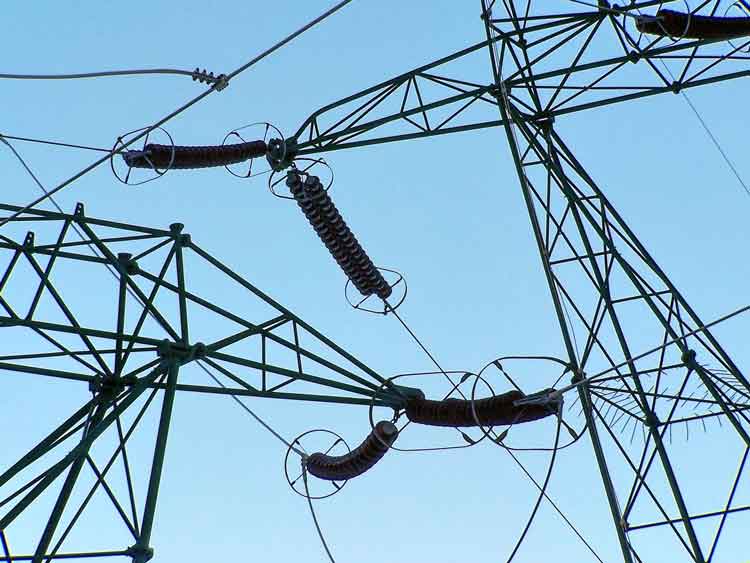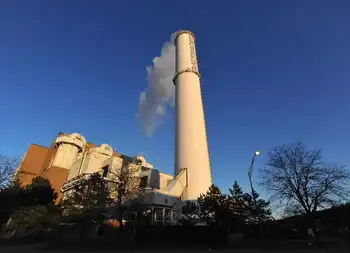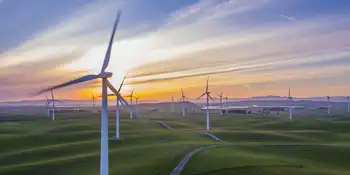Economic slump may limit moves on clean energy
- Just as the world seemed poised to combat global warming more aggressively, the economic slump and plunging prices of coal and oil are upending plans to wean businesses and consumers from fossil fuel.
From Italy to China, the threat to jobs, profits and government tax revenues posed by the financial crisis has cast doubt on commitments to cap emissions or phase out polluting factories.
Automakers, especially DetroitÂ’s Big Three, face collapsing sales, threatening their plans to invest heavily in more fuel-efficient cars. And with gas prices now around $2 a gallon in the United States, struggling consumers may be less inclined than they once were to trade in their gas-guzzling models in any case.
President-elect Barack Obama and the European Union have vowed to stick to commitments to cap emissions of carbon dioxide and invest in new green technologies, arguing that government action could stimulate the economy and create new jobs in producing sustainable energy.
But as the United Nations prepares to gather the worldÂ’s environment ministers in Poznan, Poland, next week to try to agree on a new treaty to reduce emissions, both the political will and the economic underpinnings for a much more assertive strategy appear shakier than they did even a few weeks ago.
“Yes things have changed,” said Yvo de Boer, executive secretary of the United Nations Framework Convention on Climate Change, in a phone interview. He is organizing the meeting in Poland.
“European industry is saying we can’t deal with financial crisis and reduce emissions at the same time,” he said. “Heads of government have other things on their minds.”
The economic decline also could complicate the political calculus of limiting emissions in developing countries, especially China.
China overtook the United States as the largest producer of greenhouse gases in 2007. But the surge in heavy industry there that produced a sharp increase in its emissions already has given signs of turning into a bust.
Some experts argue that China’s emissions — and the pressing need to limit them — may recede until economic conditions improve.
No government has officially repudiated climate goals; in Bali last year, all the nations of the world promised to pursue an emissions control treaty. Mr. de Boer said he remained optimistic that major powers would ultimately stick to pledges to reduce emissions.
“I don’t think anyone will show the stupidity to focus on the short term and ignore the long-term issue because these decisions will be with us for 30 years,” he said.
Even so, there are signs of considerable backpedaling in at least near-term commitments to invest in green technology and alternative energy.
Italy’s environment minister, Stefania Prestigiacomo, said last month that “profound changes” were needed in the European Union climate package because of the global economic crisis. Coal-based economies like Poland’s have expressed similar worries.
Theolia, one of FranceÂ’s largest alternative energy companies, has canceled plans for a subsidiary devoted to emerging markets, and pulled back on its goals of how much energy it could produce by 2009.
In the United States, T. Boone Pickens, the Oklahoma oil tycoon who leased hundreds of thousands of acres in West Texas for a giant wind farm, has now delayed the project. He told reporters at a recent news conference that fossil fuel prices would have to rise again before it was economically viable.
Barbara Helfferich, the European Commission spokeswoman on the environment, said, “Investing in reducing emission is more difficult to do in times of economic downturn than when you have money to spend.”
Mr. Obama, Mr. de Boer and Stavros Dimas, the European Union environment commissioner, all argue that by promoting new green jobs, even with heavy government subsidies, they could create an engine of economic growth that would help countries pull themselves out of the recession.
Mr. Obama, without releasing specifics of his proposed economic stimulus package, called on the country to build “wind farms and solar panels, fuel-efficient cars and the alternative energy technologies that can free us from our dependence on foreign oil and keep our economy competitive in the years ahead.”
The European Commission says it is planning to stay its course toward lower emissions — a 20-percent reduction by 2020 — and in so doing hopes to have a “first mover advantage” in terms of job creation, renewable sources and energy innovation once the global economy rebounds.
“I know it sounds counterintuitive, but our argument is that because there is an economic turndown, it is just the time to tackle the transition from a high-carbon to a low-carbon economy,” Ms. Helfferich said.
Recessions can be good or bad for achieving environmental goals, and it remains uncertain how this one will play out.
In the short term, economic declines tend to reduce emissions, because industrial production slows down. Retrenchment will certainly curb fast-growing emissions from China, for example, where double-digit economic growth has been based partly on production from the most polluting industries, such as steel, cement and aluminum. But such reductions are inevitably temporary, rebounding when the economy picks up.
Against this, the current economic slump could have serious long-term environmental consequences, because it may reduce investment in greener production technologies without fundamentally changing the longer-term emissions picture. With so many renewable energy projects and programs in their nascent stages, their success is easily undercut by lack of credit or financing.
Centrica, a British company that has been building wind farms to meet its target of having 15 percent of that countryÂ’s energy come from renewable sources by 2020, has put three planned offshore wind farms on hold, in part because of rising credit costs. Without projects like these it is unclear if BritainÂ’s ambitious emissions reductions target can be met.
At the same time, the price of buying permits to emit carbon dioxide in Europe — a system the European Union uses to discourage companies from polluting — have fallen by half compared with the price a year ago, largely because of slower growth.
Wind costs more than $2.5 billion per gigawatt to build, compared with $600 million for gas. Carbon permits and subsidies can narrow that gap, but the current low prices mean that it is cheaper to burn coal, even after paying penalties for the carbon dioxide emissions.
The United Nations says that 40 percent of the worldÂ’s power generating capacity has to be replaced in the next 5 to 10 years. Six months ago, high oil prices, easy credit and political pressure led many governments to promote biofuels, wind farms and nuclear projects and phase out fossil fuel plants. But the logic of spending more on such plants has at least partly evaporated.
“If because of the current economic scenario, you choose cheap and dirty, we’ll be in big trouble,” Mr. de Boer said.
Paradoxically, it may not look that way, at least at first. One big short-term effect of the economic situation is likely to be a reduction of emissions from the developing world. In the decade after the Eastern bloc countries gained independence in 1989, pollution dropped precipitously, as Soviet-era heavy industry shut down.
Emissions dropped sharply between 1990 and 2000, only to start rebounding in the boom years after 2000. By 2006, for example, emissions dropped by 1 percent in industrialized countries (mostly those in Western Europe) that report their emissions to the United Nations. At the same time, they increased by 3 percent in the so called “economies in transition,” including the former Soviet bloc states of Eastern Europe.
In the current global recession China could follow a similar trajectory.
The number of cement plants in China rose to 7,000 from 3,000 from the year 2002 to 2007, as China built new cities at a record pace. That catapulted China to top of the list of global emitters, more than a decade earlier than scientists had anticipated just a few years before.
Yet straight-line projections about ChinaÂ’s emissions are now again in question, said Trevor Houser, a visiting fellow at the Washington-based Peterson Institute for International Economics.
“Demand for goods like steel, cement and aluminum is contracting severely, so the energy used to produce them is also severely down,” he said.
Last month, he said, ChinaÂ’s energy use fell by 4 percent compared with the same month in 2007. A year ago, use was growing at an annual rate of 15 percent.
That may ultimately be a good thing for the Chinese economy as well as the environment, because heavy industry produces heavy emissions, but very few jobs.
Indeed, the slowdown may provide an opportunity for China, too, to reinvent itself with investment in a greener economy. “Slower energy demand provides an opportunity to move away from coal,” he said.
Still, such benefits may be more apparent to environmentalists than to factory owners and finance ministers trying to meet budgets and make profits. The European Union estimates that it will cost Italian industry 13 billion euros, about $16.7 billion, to reduce emissions. Italy puts the cost up to 27 billion euros, which is says it cannot afford.
“Transitions are expensive, but this one will help avoid the ups and downs we’ve recently seen,” Ms. Helfferich said. “This is a short-term bitter apple to create new sectors that are conducive to fighting climate change and jobs as well.”
Related News

No public details for Newfoundland electricity rate mitigation talks
ST JOHNS - At the announcement of an updated Atlantic Accord between the provincial and federal governments, Newfoundland and Larbrador Premier Dwight Ball gave notice federal Finance Minister Bill Morneau will be in St. John’s to talk about the cost of Muskrat Falls.
“We look forward to welcoming Minister Morneau and his team to advance discussions on rate mitigation,” read a statement from the premier’s office Tuesday, in response to questions about that coming meeting and federal-provincial work on rate mitigation.
At the announcement, Ball specifically said the plan is to “finalize federal involvement for making sure electricity rates remain affordable,” with Ball and…




